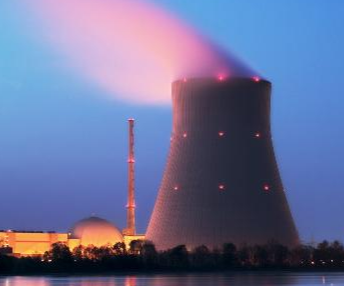Research status and prospect of comprehensive utilization of nuclear energy
3.5 Heat utilization of nuclear high-temperature process
Chemical processes such as synthetic ammonia, coal gasification and methane steam reforming all require high temperatures above 700 ° C, and these traditional chemical industries have huge energy consumption, while the demand for synthetic ammonia, coal liquefaction and petroleum cracking products (such as ethylene) is gradually growing. In the face of increasingly stringent carbon emission requirements and the increasing scarcity of traditional energy resources, it is important to explore new industrial energy supplies and coupling. If you can directly use the high temperature heat generated by the reactor, you can achieve energy saving of about 30%, reducing the total energy consumption at the same time, improve the economy of nuclear energy. The fourth generation nuclear reactor, represented by molten salt reactor, has an outlet temperature of more than 700 ° C. In the future, the heat generated by the reactor can be directly used as a heat source for industrial production processes, for steam reforming of natural gas, gasification and liquefication of coal, synthesis of ammonia, ethylene production and other energy-intensive fields, and the saved fossil fuel can be used as chemical raw materials [22].

One of the major challenges facing heat utilization in high-temperature processes is safety protection, management and licensing issues, which need to address the concerns of managers and the public about the coupled use of nuclear energy and chemical industry. At the same time, for different types of process heat utilization, it is necessary to implement new management regulations and apply for new licenses.
4 Outlook
In the face of low-carbon energy demand in the future, nuclear energy and renewable energy are important ways to achieve zero carbon emissions. Renewable energy has the advantages of rich resources, clean and renewable, but the volatility or intermittently of renewable energy leads to a lack of good compatibility with the current grid infrastructure. When large-scale use, it is necessary to provide stable base load energy to regulate power output. Because of its sustainability, efficiency and reliability, nuclear energy is the only clean energy that can provide dispatchable baseload power. Therefore, the construction of a hybrid energy system (HES) integrating nuclear energy and renewable energy is an important solution to achieve low-carbon, clean and efficient use of energy.
For the fourth-generation nuclear energy system, the advantages of nuclear energy and renewable energy can be fully utilized and coordinated through the technology of molten salt heat storage and high temperature hydrogen production. Therefore, it is necessary to evaluate the share of various clean energy sources in the national and global energy system from the perspective of economic and energy security, develop a reasonable technical path, carry out a demonstration of a multi-energy fusion nuclear-renewable energy complex energy system (Figure 5), and achieve stable operation. To solve and overcome the problems in the coupling use of these two technologies is of great significance to the development and progress of economy and society, and is also an important trend in the development of comprehensive utilization of nuclear energy.
At present, the third generation of nuclear energy systems represented by Hualong One, AP1000 and EPR have begun large-scale commercial applications, which can meet the basic needs of current and future nuclear power development. It is recommended to speed up the research and development of the fourth-generation nuclear energy system represented by molten salt reactors and related comprehensive utilization technologies such as nuclear hydrogen production and high-temperature heat utilization, fully mobilize the advantages of relevant domestic research institutions and enterprises, increase policy support and investment guarantee, and include relevant tasks in national science and technology major projects. We will implement and build demonstration projects for the comprehensive utilization of nuclear energy, such as hydrogen production and nuclear heating.
- ABB
- General Electric
- EMERSON
- Honeywell
- HIMA
- ALSTOM
- Rolls-Royce
- MOTOROLA
- Rockwell
- Siemens
- Woodward
- YOKOGAWA
- FOXBORO
- KOLLMORGEN
- MOOG
- KB
- YAMAHA
- BENDER
- TEKTRONIX
- Westinghouse
- AMAT
- AB
- XYCOM
- Yaskawa
- B&R
- Schneider
- Kongsberg
- NI
- WATLOW
- ProSoft
- SEW
- ADVANCED
- Reliance
- TRICONEX
- METSO
- MAN
- Advantest
- STUDER
- KONGSBERG
- DANAHER MOTION
- Bently
- Galil
- EATON
- MOLEX
- DEIF
- B&W
- ZYGO
- Aerotech
- DANFOSS
- Beijer
- Moxa
- Rexroth
- Johnson
- WAGO
- TOSHIBA
- BMCM
- SMC
- HITACHI
- HIRSCHMANN
- Application field
- XP POWER
- CTI
- TRICON
- STOBER
- Thinklogical
- Horner Automation
- Meggitt
- Fanuc
- Baldor
- SHINKAWA
- Other Brands




































































































































